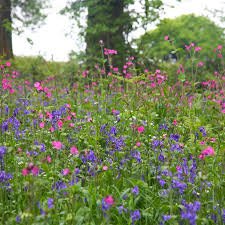Help Swallows, Swifts and House Martins
The arrival of summer, for many of us, is marked by the sights and sounds of our summer residents returning from their 10,000 mile journeys from Southern Africa. Just as our countryside and gardens burst into abundant life swifts, house martins and swallows return to their nest sites in our parish.
Their numbers have plummeted dramatically over the past 40 years and the species are Red Listed as being in danger of extinction. Every returning bird and successfully raised brood of chicks are vital to their survival. The global scarcity of their food (insects), due to changes in both farming practices and climate change disrupted weather patterns, are believed to be major factors in the population declines.
Since early May, the distinctive sound of swift screaming parties have been heard circling over their established colonies at St Mary and St Gabriel's Church, Church Farm and the Grange. Swallows and house martins can be spotted swooping over the fields and hedgerows. With several residents reporting the flurry of activity from swallows reclaiming their nests in barns and carports. We hope many of you will have joined us on Friday 28th June 5-8pm at the Harting Club to learn more about these wonderful birds.
Heartening as it is to enjoy the birds return, their numbers are worryingly low. Following the success of last year's project, Operation Nest Box, there are many more secure sites to support (what we hope will become) growing populations of all 3 species. The loss of established nesting sites due to building renovations and people knocking nests off walls have been identified as major causes for breeding failure in the UK. If you are planning roof work, do get in touch. There are very affordable options for incorporating integral nest boxes for these birds at no inconvenience to the human residents! Having nest sites on properties where the birds are welcome has proven to be a game changer on similar projects across the UK.
Many people have asked whether there is anything they could do that would help our birds and wildlife in general. It may not sound glamorous, but doing what you can to boost the volume of insects and other invertebrates in your garden is the most important thing we can all do to save our wildlife!
Adding a pond, even using an old washing up bowl, will provide habitat, water and food for a huge range of creatures. Deciding to stop using bug sprays and slug pellets is another positive choice. Building a log stack, a bug hotel or a bee hotel can all be done with little if any cost. Letting our lawns grow a little longer to allow wild flowers such as clover, self-heal and daisies to flower, will provide pollen and nectar for pollinators. Small changes made by many people can make a big impact.
If you would like more information please contact me, Christine Cunningham on christine.cunningham@live.co.uk
June 2024

